Pediatric therapy uses science-based approaches to help your child grow and succeed. The methods used will depend on your child’s specific needs, aiming to get the best results. When looking for help, there are a few things to keep in mind: different ages might need different types of therapy, and depending on the situation, your role as a parent could be super important in the process.
The Key Benefits of Pediatric Therapy Services
It can be overwhelming to figure out which type of therapy is best for your child. Instead of viewing different pediatric services as isolated options, it’s important to recognize that each therapy is tailored to meet your child’s specific needs and challenges.
Pediatric Occupational Therapy
Occupational therapy can be a great option if your child struggles with interacting with others or needs assistance with daily tasks. Occupational therapists are trained to support your child’s emotional, mental, and physical development. If muscle or sensory challenges are impacting your child’s everyday activities, this type of therapy can help improve their sensory processing and visual motor skills, fostering greater independence.
Pediatric occupational therapy services are designed to help your child develop essential everyday skills, such as:
- Independence in Daily Activities: Your child can work on basic self-care tasks like brushing teeth, dressing, bathing, and eating independently.
- Behavior and Emotional Regulation: Therapy can support your child in managing social behaviors and developing coping skills, such as controlling anger without hitting or throwing tantrums.
- Hand-Eye Coordination: Improved coordination can help your child play sports at school, catch a ball, and make tasks like copying from the board in class easier.
- Social and Attention Skills: Occupational therapy can enhance your child’s ability to focus, build friendships, and form positive relationships with others.
- Handwriting and Fine Motor Skills: Your child may see improvements in handwriting and grip strength, making it easier to hold toys, utensils, and pencils.

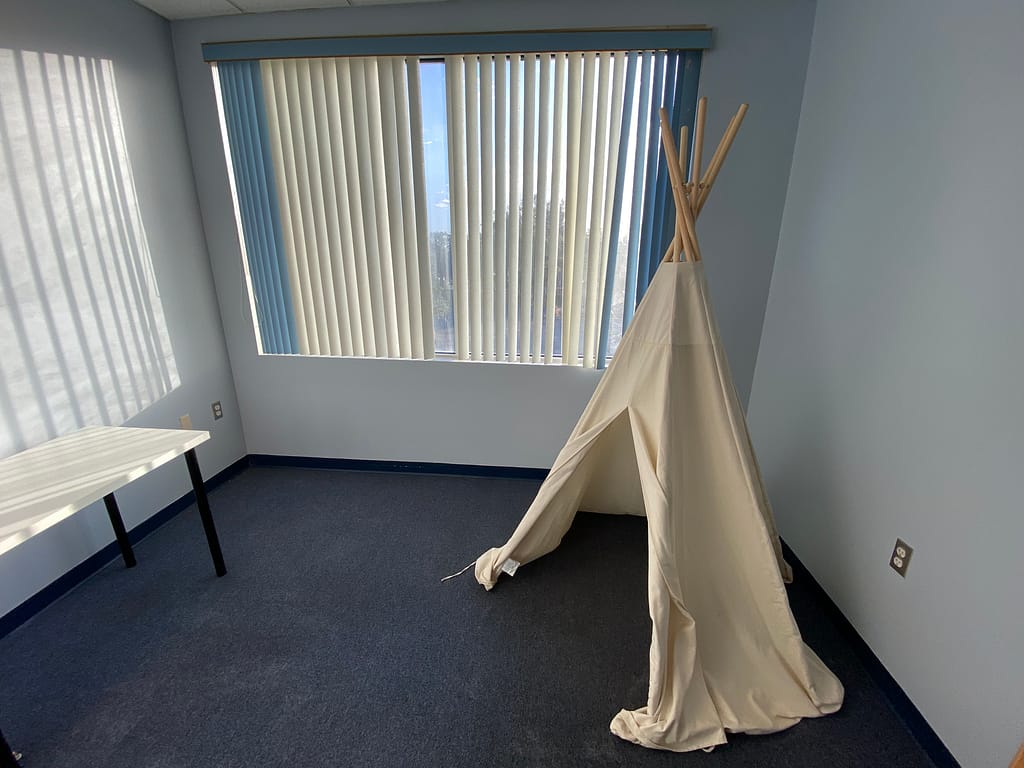
Pediatric Speech and Language Therapy
If your child has difficulty with speech, such as stuttering or trouble pronouncing words, a speech-language pathologist can provide valuable support. Signs that your child might benefit from speech therapy include struggling to follow directions, having trouble answering questions, not speaking at an age-appropriate level, or facing learning challenges. These issues underscore the importance of pediatric therapy services in helping children develop effective communication skills.
What Is Pediatric Speech and Language Therapy?
Speech-language therapy provides children with the tools to improve both verbal and non-verbal communication, which are crucial for effective interaction with others. This type of therapy helps children articulate their thoughts clearly, whether through spoken words or alternative means such as gestures and facial expressions. It also supports the development of social communication skills, such as recognizing and responding to non-verbal cues like body language and tone of voice, which are essential for forming positive relationships.
In addition to these skills, speech-language therapy can address difficulties in expressive and receptive language. This includes helping children better understand language, follow directions, and improve their ability to participate in conversations. By focusing on both verbal articulation and social communication strategies, speech-language therapy offers a comprehensive approach to ensuring that children can express themselves confidently and navigate social situations more effectively.
Speech pathologists can help your child develop stronger communication skills in several ways:
- Improved Social Interactions: Your child may feel more at ease when interacting with peers, as they will be better equipped to communicate in socially appropriate ways.
- Expressing Needs and Wants: Speech therapy can help your child communicate their needs and desires more effectively, using a variety of methods.
- Better Understanding of Language: Through pediatric therapy, your child will have an improved ability to understand verbal language used by you, their peers, and teachers.
- Swallowing and Feeding Support: A speech therapist can also assist your child in improving their swallowing and feeding abilities, ensuring they can eat and drink safely.
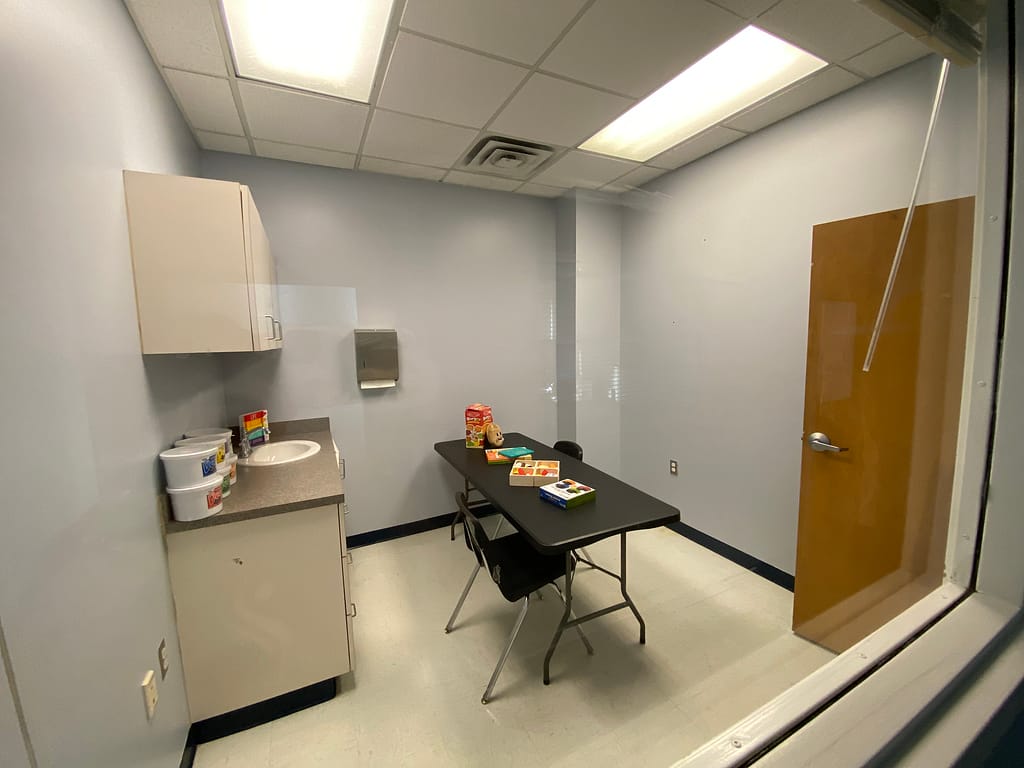
Pediatric Physical Therapy
Physical therapy focuses on improving your child’s physical abilities and mobility. It can be particularly helpful if your child has had surgery, experienced an injury, or has a congenital condition that affects their ability to use their lower body effectively. Pediatric physical therapy includes targeted treatments that help with balance, coordination, walking, and overall movement. Pain relief is also a key component of this therapy. Your therapist’s main goal is to help your child move and play with greater comfort and freedom, enabling them to engage more fully in daily activities.
Your child’s physical therapist will work with you to set specific goals aimed at improving overall flexibility and movement. These goals may include:
- Posture: The therapist can help align your child’s spine with their body, encouraging them to stand as straight as possible, which can reduce stress on their spine.
- Balance: Through physical therapy, your child can improve their balance and coordination, with a focus on preventing falls.
- Joint Motion: Therapy can help enhance joint movement, enabling your child to strengthen their grip and improve hand functionality.
- Automatic Reflexes: In younger children, physical therapy can support the development of automatic reflexes, like pulling their hand away when startled by heat.
- Muscle Tone: With physical therapy, your child’s muscle strength and tone can improve, leading to greater overall physical strength and control.

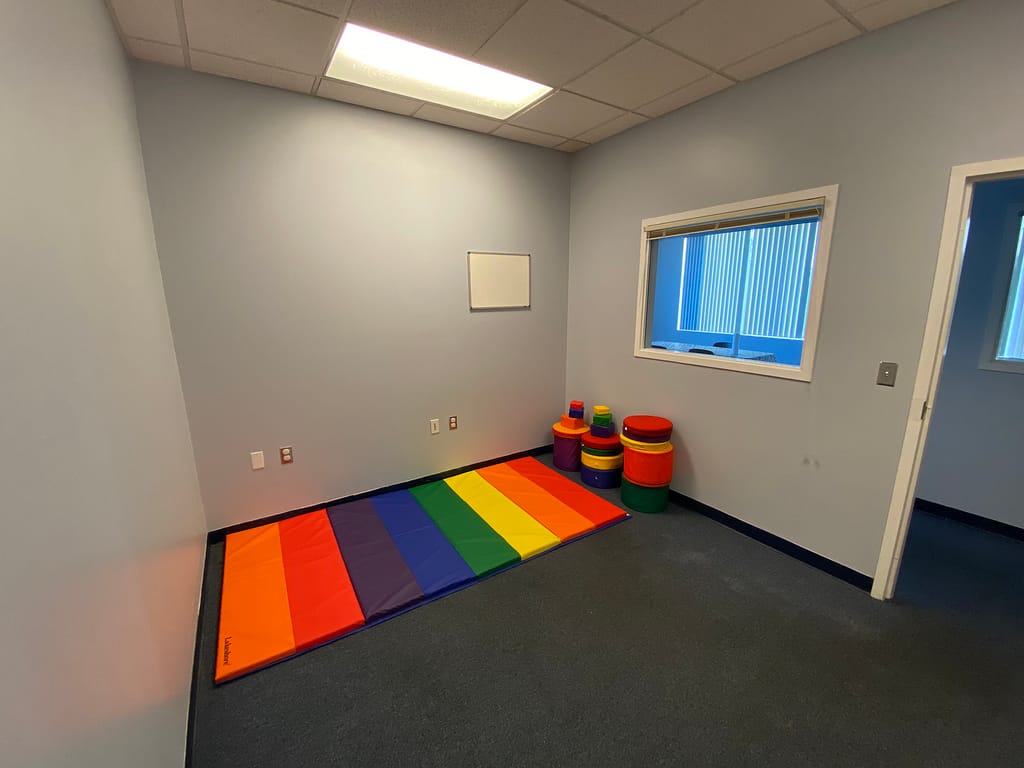
Pediatric Applied Behavior Analysis (ABA) Therapy
ABA therapy is a treatment approach designed to enhance a range of social and cognitive skills, including communication, social interactions, independence, and daily living tasks. By incorporating play into therapy, your child can feel more comfortable expressing any learning challenges and better communicate more complex issues. While ABA therapy is particularly effective for children with autism, it can also benefit children with Down syndrome, developmental delays, and other conditions.
ABA therapy can support your child in several important areas:
- Parent Involvement: It encourages parents to actively participate in their child’s treatment, creating a collaborative approach to progress.
- Building Connections: ABA therapy helps children form stronger connections with those around them, supporting their development and potential.
- Independence: It promotes your child’s ability to function independently, preparing them for real-world challenges.
- Problem-Solving: Through direct instructions, ABA therapy teaches your child problem-solving skills, fostering greater independence.
- Daily Tasks: ABA therapy prepares your child to independently handle daily activities like dressing, brushing teeth, using the bathroom, and social play.
- Emotional Regulation: It helps your child manage their emotions, teaching them healthy ways to express themselves and improve interpersonal skills.
*Love & Co. can currently accept patients for ABA therapy through the SUFS scholarship.
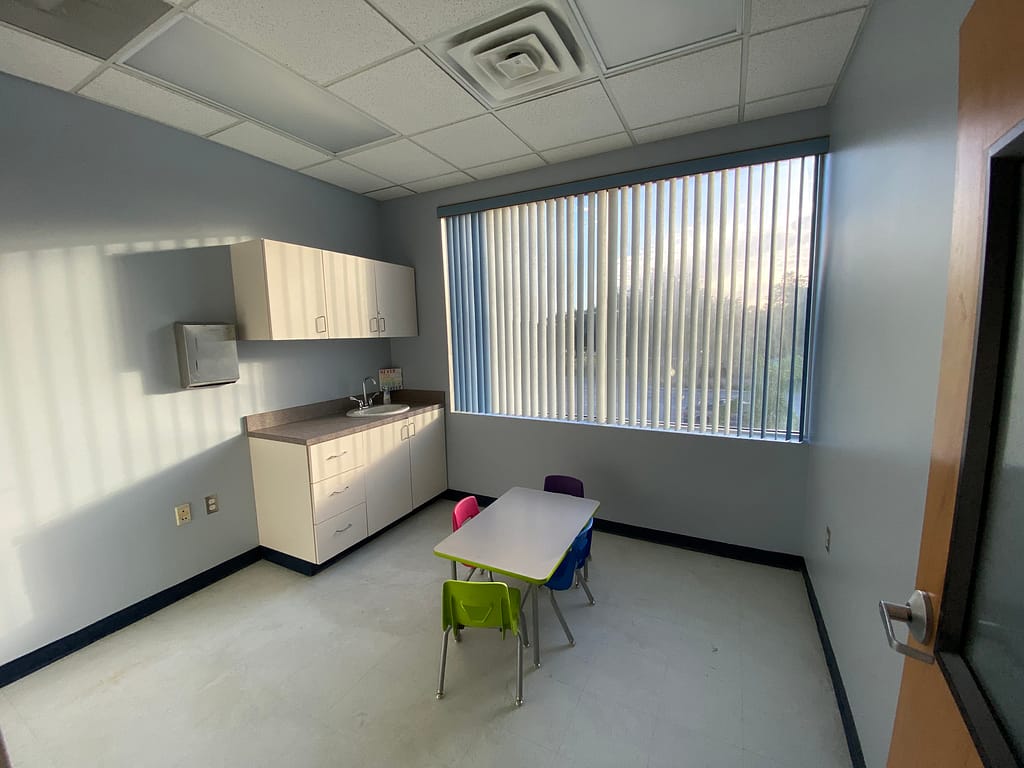
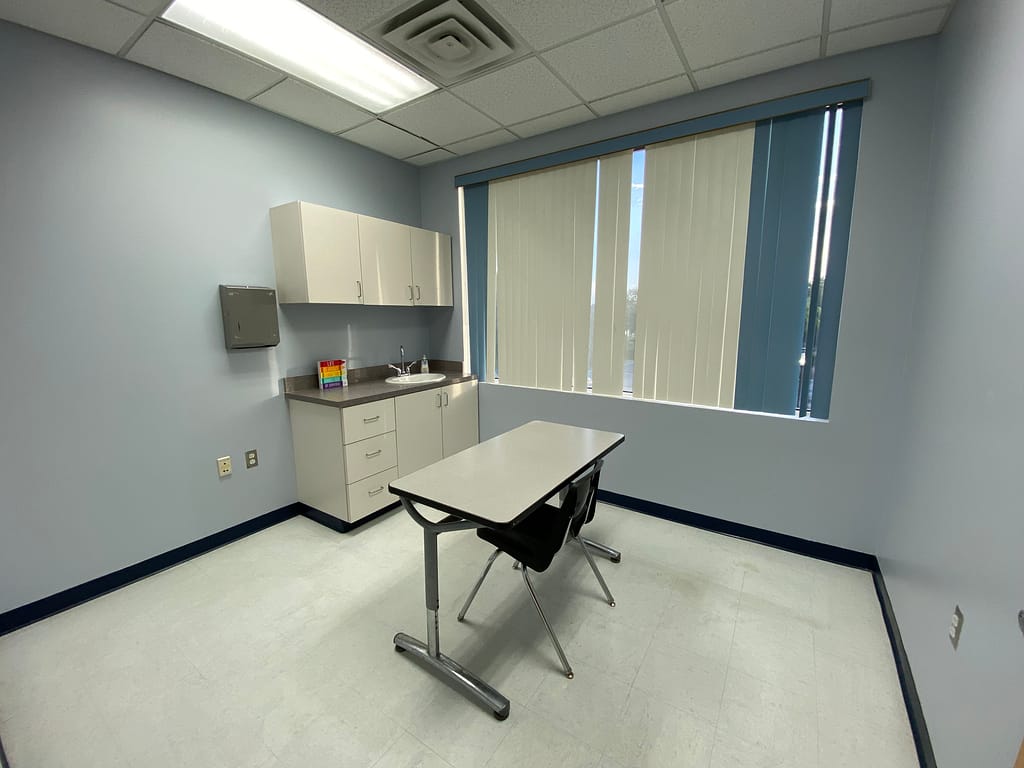
Love & Co. Therapeutic Interventions
referrals@loveandcompanytherapies.com
☎ 1 (941) 557-3881
☎ 1 (941) 264-8641
Follow us on Facebook and Instagram!
If you like our resources, please like and share our pages!
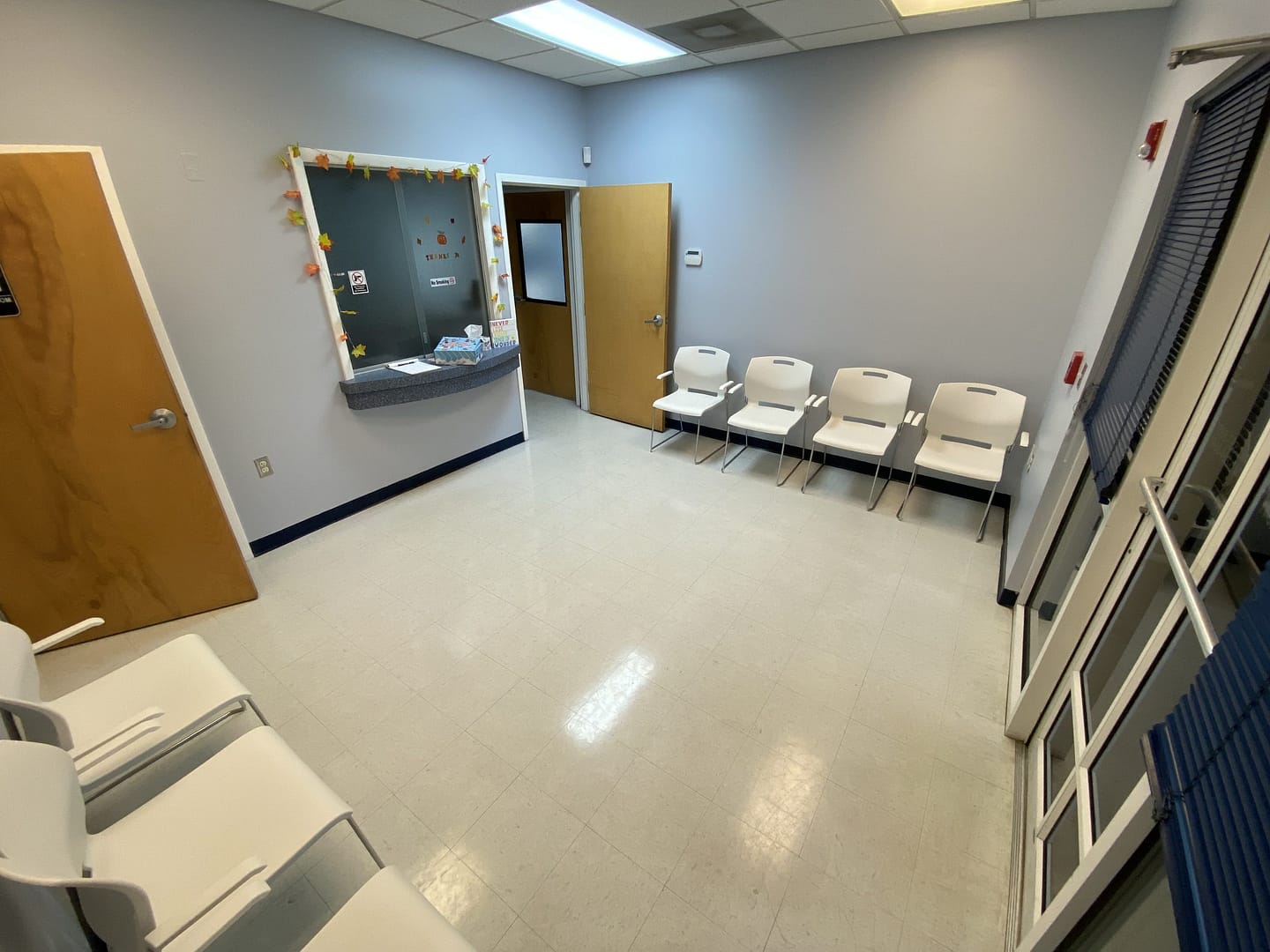
Leave a Reply